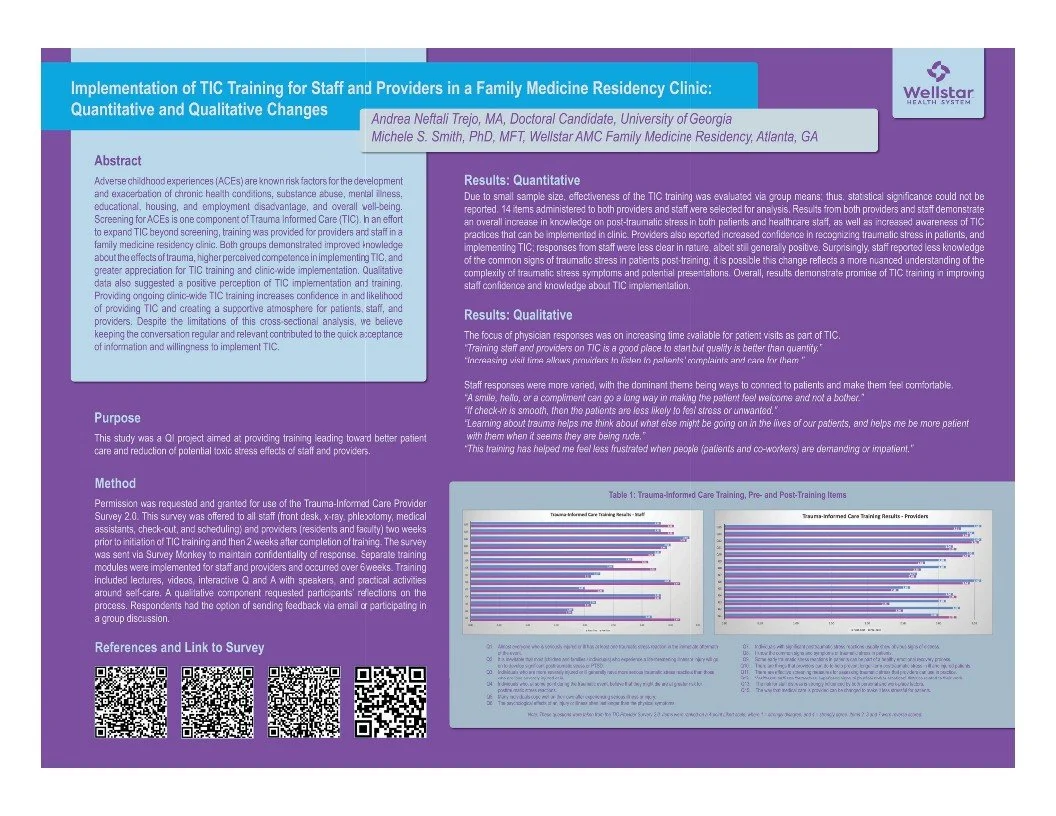Poster #12
Implementation of TIC Training for Staff and Providers in a Family Medicine Residency Clinic: Quantitative and Qualitative Changes
By: Michele S. Smith, PhD, MFT
Abstract:
Adverse childhood experiences (ACEs) are known risk factors for the development and exacerbation of chronic health conditions, substance abuse, mental illness, educational, housing, and employment disadvantage, and overall well-being. Screening for ACEs is one component of Trauma Informed Care (TIC).
To provide better patient care and reduce potential toxic stress effects on staff, training modules on TIC were implemented in a Family Medicine Residency program, with sessions for all staff (front desk, x-ray, phlebotomy, medical assistants, check-out, and scheduling) and providers (medical students, residents and faculty).
Separate training modules were implemented for staff and providers and occurred over 8 weeks. Anonymous surveys were administered prior to training and after completing the 3rd module, and evaluated knowledge about TIC, beliefs regarding value of implementation, and expectations of training. A qualitative component requested participants' reflections on the process.
Both groups demonstrated improved knowledge about the effects of trauma, higher perceived competence in implementing TIC, and greater appreciation for TIC training and clinic-wide implementation. Qualitative data also suggested a positive perception of TIC implementation and training.
Providing ongoing clinic-wide TIC training increases confidence in and likelihood of providing TIC and creating a supportive atmosphere for patients, staff, and providers. Despite the limitations of this cross-sectional analysis, we believe keeping the conversation regular and relevant contributed to the quick acceptance of information and willingness to implement TIC.
Michele smith, PhD, MFT
I have worked as a medical family therapist in Family Medicine residency programs across the US for over 20 years. Working in integrated behavioral health settings has given me the opportunity to teach family medicine residents and mental health trainees about how to consider ACEs/trauma in providing whole person care. I have presented at national and international conferences on these and related topics.

